Do you ever feel confused when choosing olive oil at the store with so many options available? If so, you are not alone.
Olive oil shoppers often find themselves faced with a choice between various olive oil types, including pure olive oil and extra virgin olive oil.
Each has its distinct characteristics and uses, and understanding the difference between these two options is essential for both culinary enthusiasts and health-conscious consumers.
This article delves into the nuances that set pure olive oil and extra virgin olive oil apart and pinpoint their unique qualities to help you decide between the two.
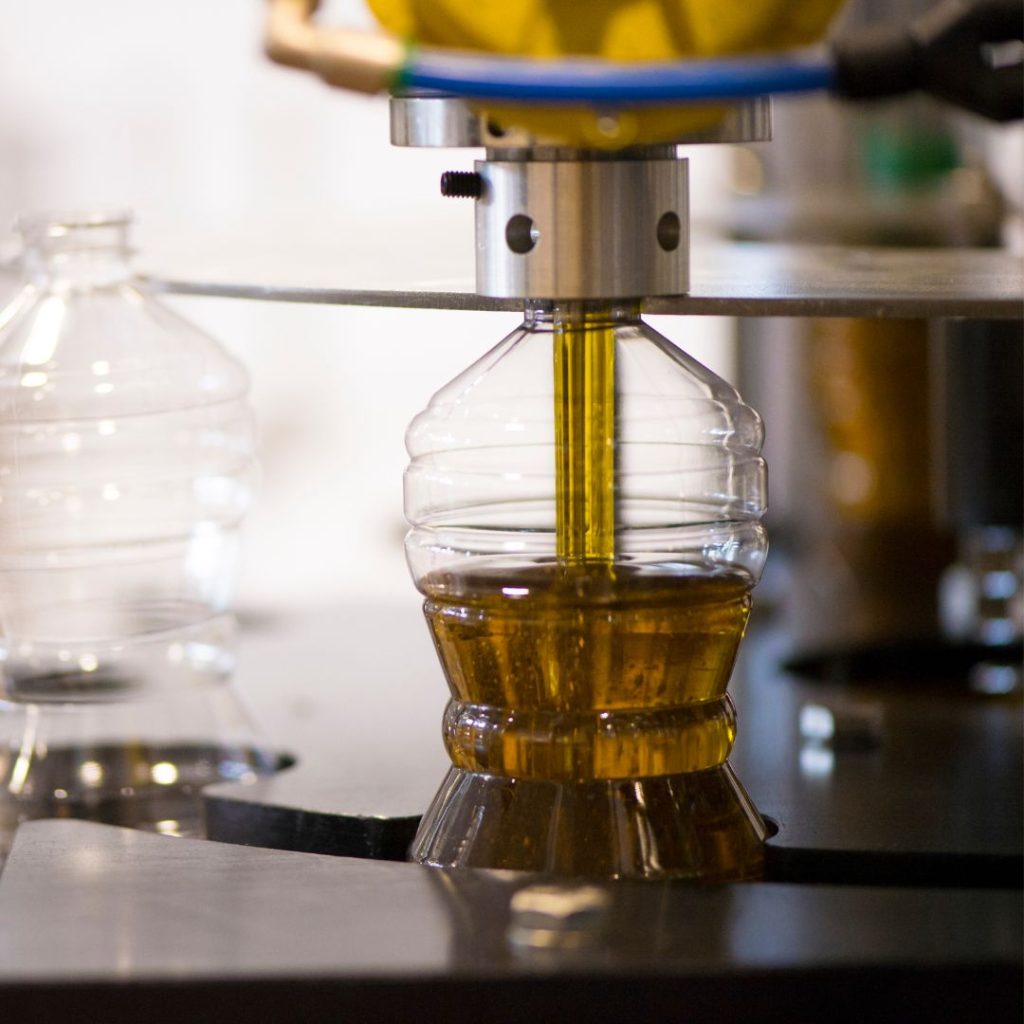
Processing methods of Extra Virgin Olive Oil and Pure Olive Oil
The distinction between the two oils is primarily defined by their respective processing methods.
Extra virgin olive oil is the highest quality in the market as it is produced with cold-pressing.
It is made by mechanically pressing olives without the use of heat or chemicals, resulting in a pure and flavorful oil with low acidity and a distinct taste profile.
Pure olive oil, sometimes referred to as “olive oil” or “light olive oil,” is a type of olive oil that is more processed than extra virgin olive oil.
It is typically a blend of refined olive oil and a small amount of virgin olive oil. It is also produced using more intense heat and chemicals.
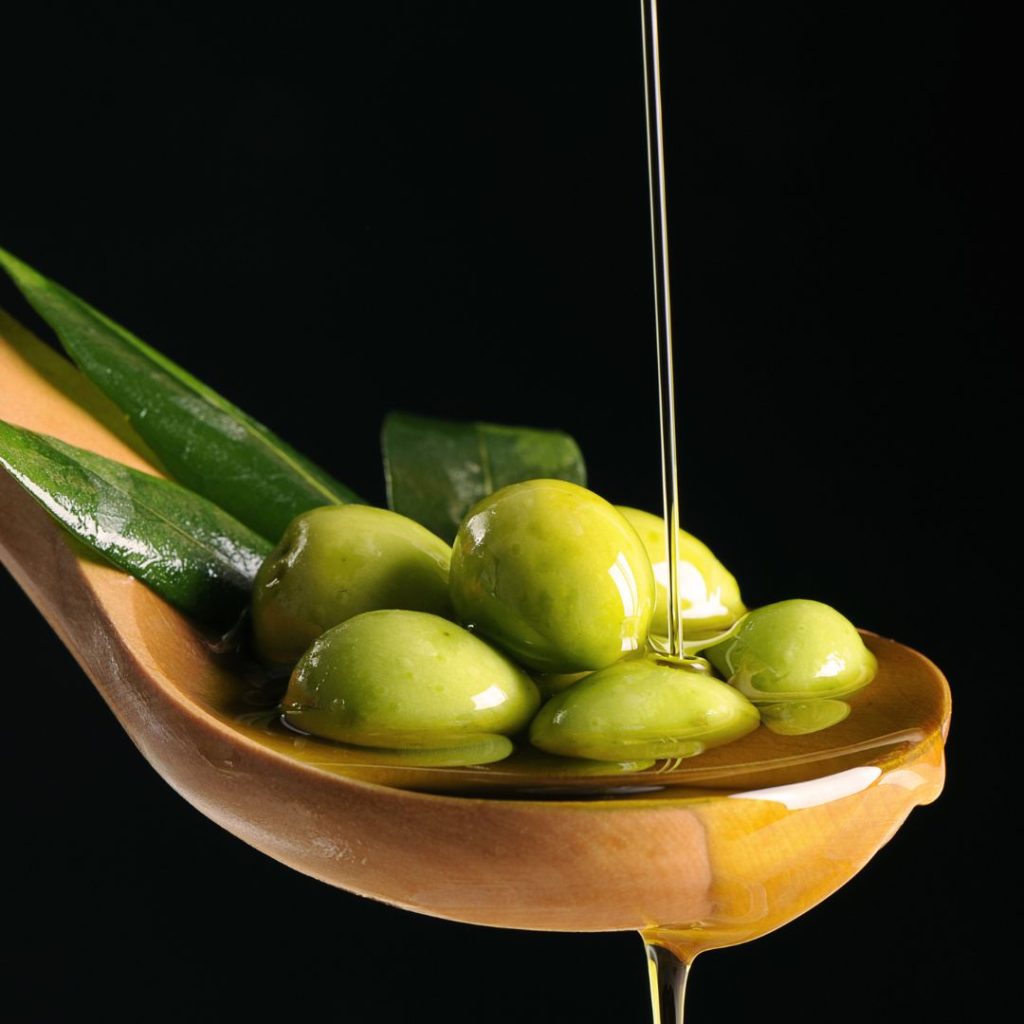
Nutrition Content of Extra Virgin Olive Oil and Pure Olive Oil
The two oils are both great sources of nutritional content.
Extra virgin olive oil is known for its high levels of monounsaturated fats, which have been linked to heart health and reduced inflammation.
It also contains antioxidants such as vitamins E and K that can help protect a body’s cells from being damaged.
Pure olive oil has the same nutritional background as extra virgin olive oil, but it contains lower levels of nutritional components like antioxidants due to its complex extraction process.
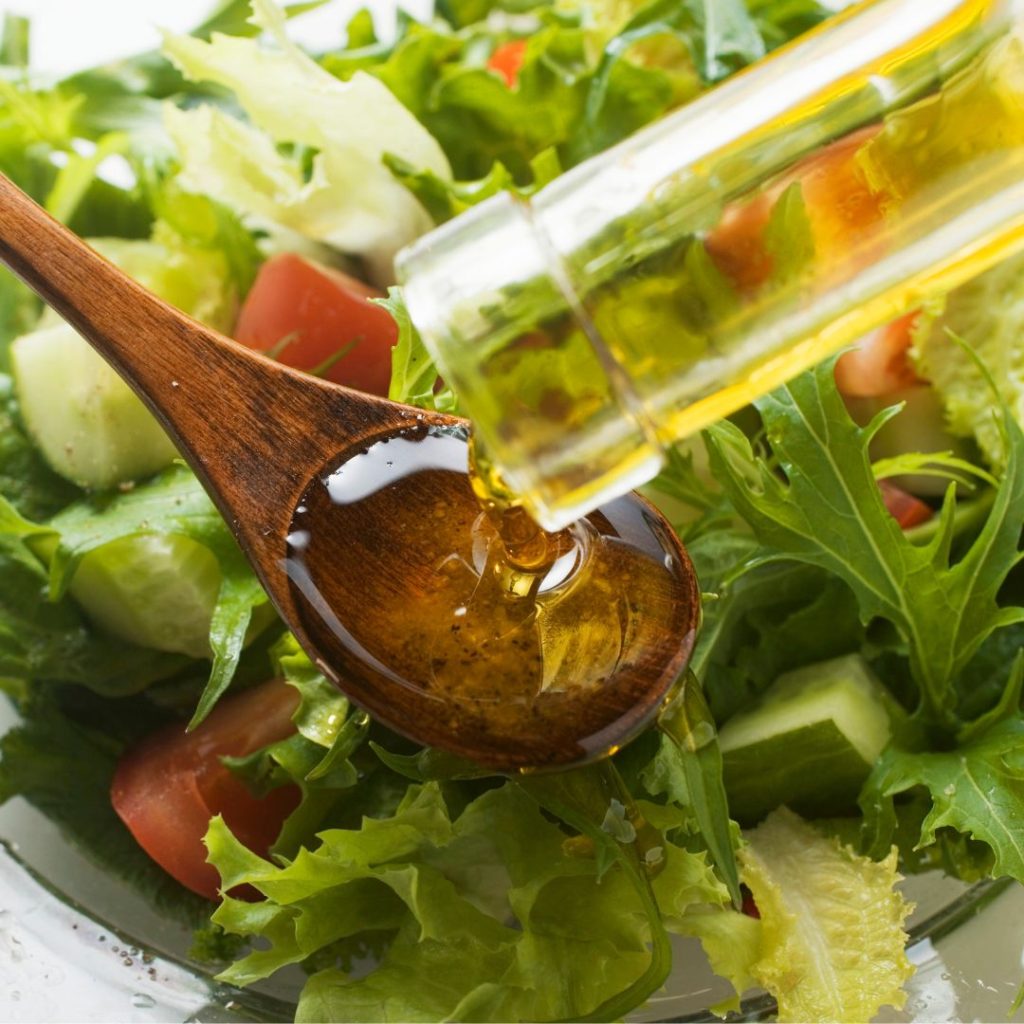
Flavor and Culinary Uses
The flavors and culinary applications of extra virgin olive oil and pure olive oil differ significantly.
Extra virgin olive oil is known for its robust flavor and fruity undertones. It also has a lower smoke point, making it more suitable for salad dressings or bread dips.
Pure olive oil has a milder flavor and is best used for sautéing, baking, and frying.
Both types of olive oil are excellent choices for cooking or as a supplement to your meals, but they bring different flavors and nuances to your dishes.

Choosing The Right Olive Oil
Primary Rating:
3.5 | Primary Rating:
3.5 |
N/A
| |
Pros:
| Pros:
|
Cons:
| Cons:
|
- Boasts a robust and fruity flavor profile, adding depth and character to dishes, particularly in salad dressings, drizzles, and dips.
- Retains a higher concentration of antioxidants, vitamins, and monounsaturated fats, which benefit heart health and reduce inflammation.
- Lower Smoke Point: EVOO has a lower smoke point compared to regular olive oil, making it less suitable for high-temperature cooking methods like frying.
- Cost: It tends to be more expensive than regular olive oil, which can be a limiting factor for budget-conscious consumers.
- Offers a mild and neutral flavor profile, which makes it a versatile choice for a wide range of dishes.
- Can handle higher cooking temperatures, making it suitable for frying, sautéing, and other high-heat cooking methods without breaking down or producing undesirable tastes.
- Generally less expensive than extra virgin olive oil, making it a budget-friendly option for everyday cooking.
- Contains beneficial monounsaturated fats, which can have positive effects on heart health when consumed in moderation.
- Lacks the rich array of antioxidants and phytonutrients found in extra virgin olive oil.
- Lacks the robust and complex taste profile that characterizes extra virgin olive oil.
- Undergoes more extensive processing, including refining and filtering, which can strip away some of the natural compounds and aromatic elements found in extra virgin olive oil.
- Not be the best choice for recipes that specifically rely on the distinctive flavor of extra virgin olive oil.
When it comes to selecting olive oils, there is no need to worry about making the perfect choice.
Each variety serves a distinct role in the kitchen, and understanding their purpose can assist you in meeting your specific culinary requirements.
It is worth noting that extra virgin olive oil is the more premium option due to its outstanding quality and bold taste.
In contrast, pure olive oil provides a neutral flavor suitable for a variety of cooking techniques, especially those involving higher temperatures.
The decision between the two should be influenced by your personal culinary preferences and the specific purpose of your recipes.
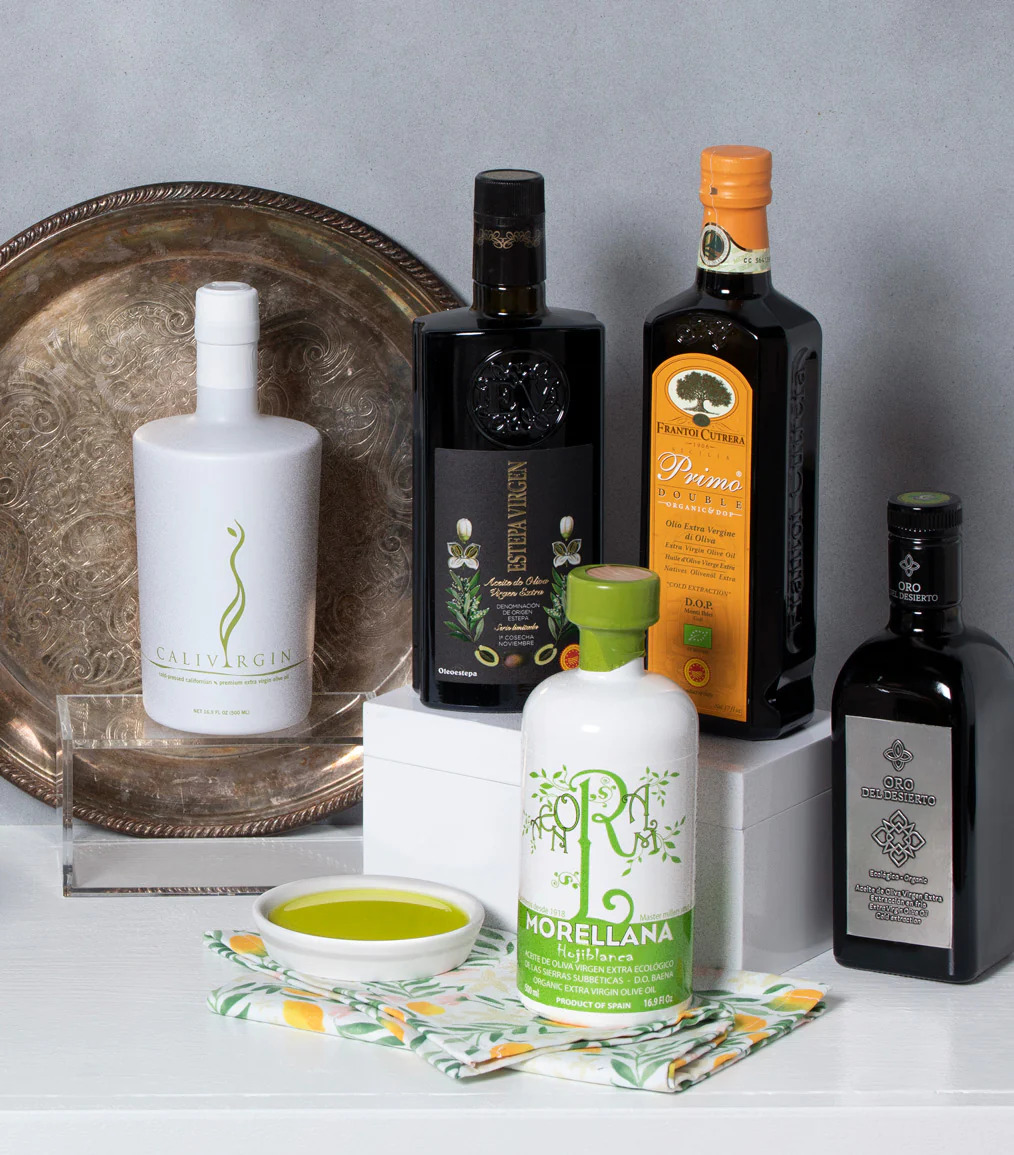 Shop Top-grade Extra Virgin Olive Oils From Olive Oil Lovers
Shop Top-grade Extra Virgin Olive Oils From Olive Oil Lovers Craving the convenience of having organic extra virgin olive oil delivered straight to your doorstep? Olive Oil Lovers has got you covered!
Olive Oil Lovers dedicates their business to providing you with the absolute finest extra virgin olive oil. They carefully select and handpick each bottle, ensuring you receive only the highest quality products. They believe in the exceptional taste and health benefits of top-notch olive oil, and their commitment is to share that love and quality with you.
Click the link below, and you can order your bottle of this premium olive oil right now. It's a flavorful addition to your kitchen that you won't want to miss out on!





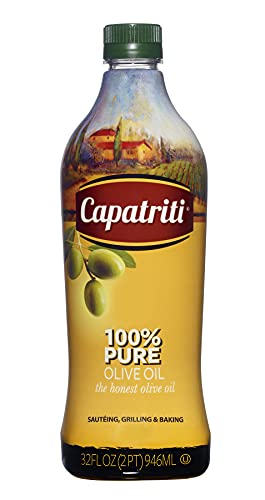

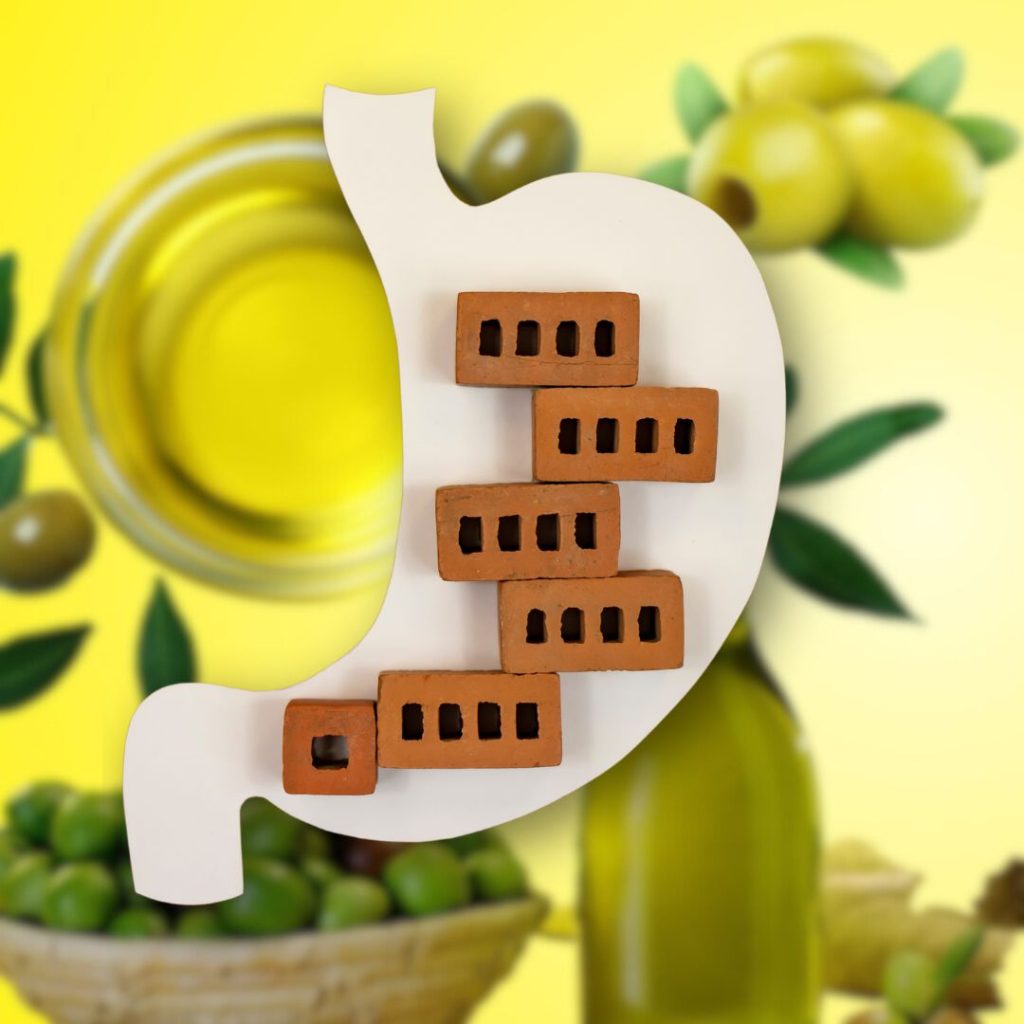
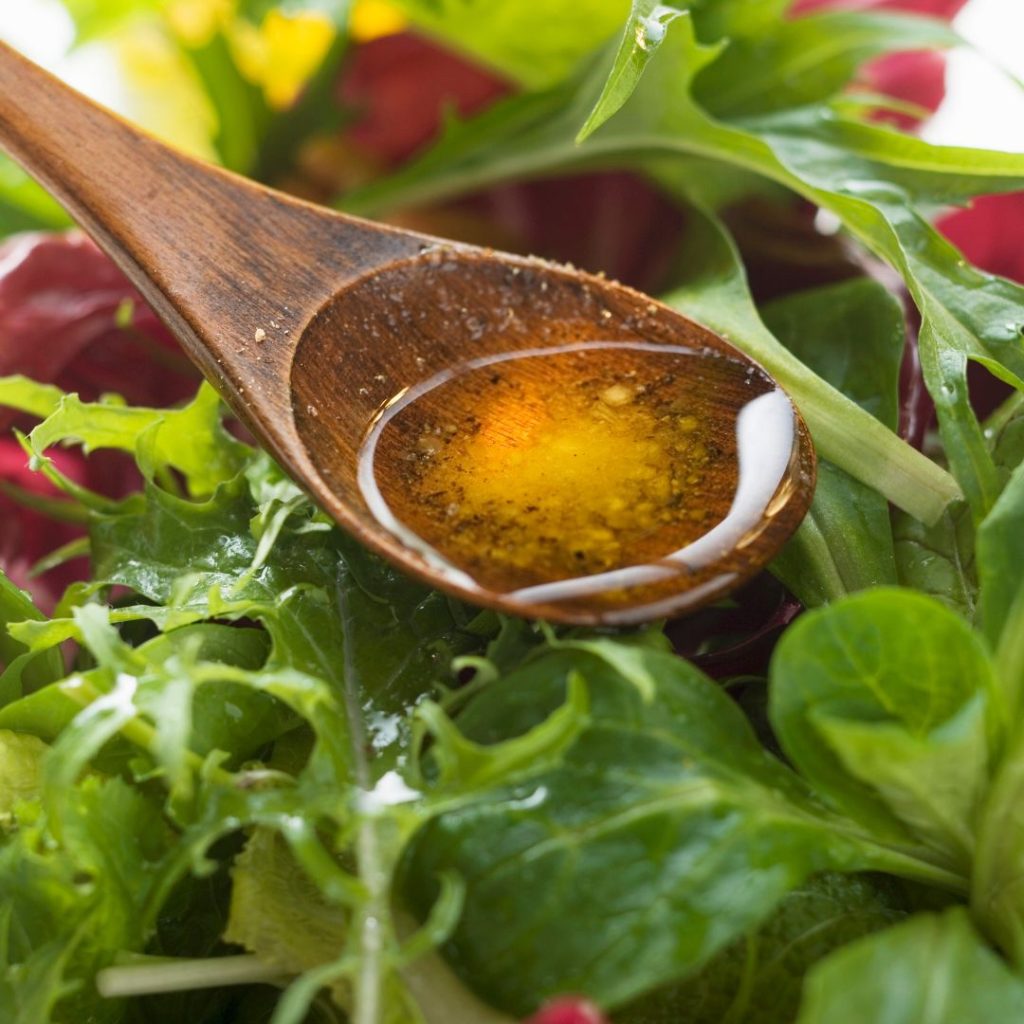
Konnichiwa! (Hello!) I'm Pat Tokuyama, a Japanese tofu cookbook author, who travels for music, food, and adventure. If you like Japanese tea, checkout some of the newestorganic japanese tea, matcha bowls and noren and more!
** Curious about the Plant Based Japanese Cooking Club? ** Learn more here!